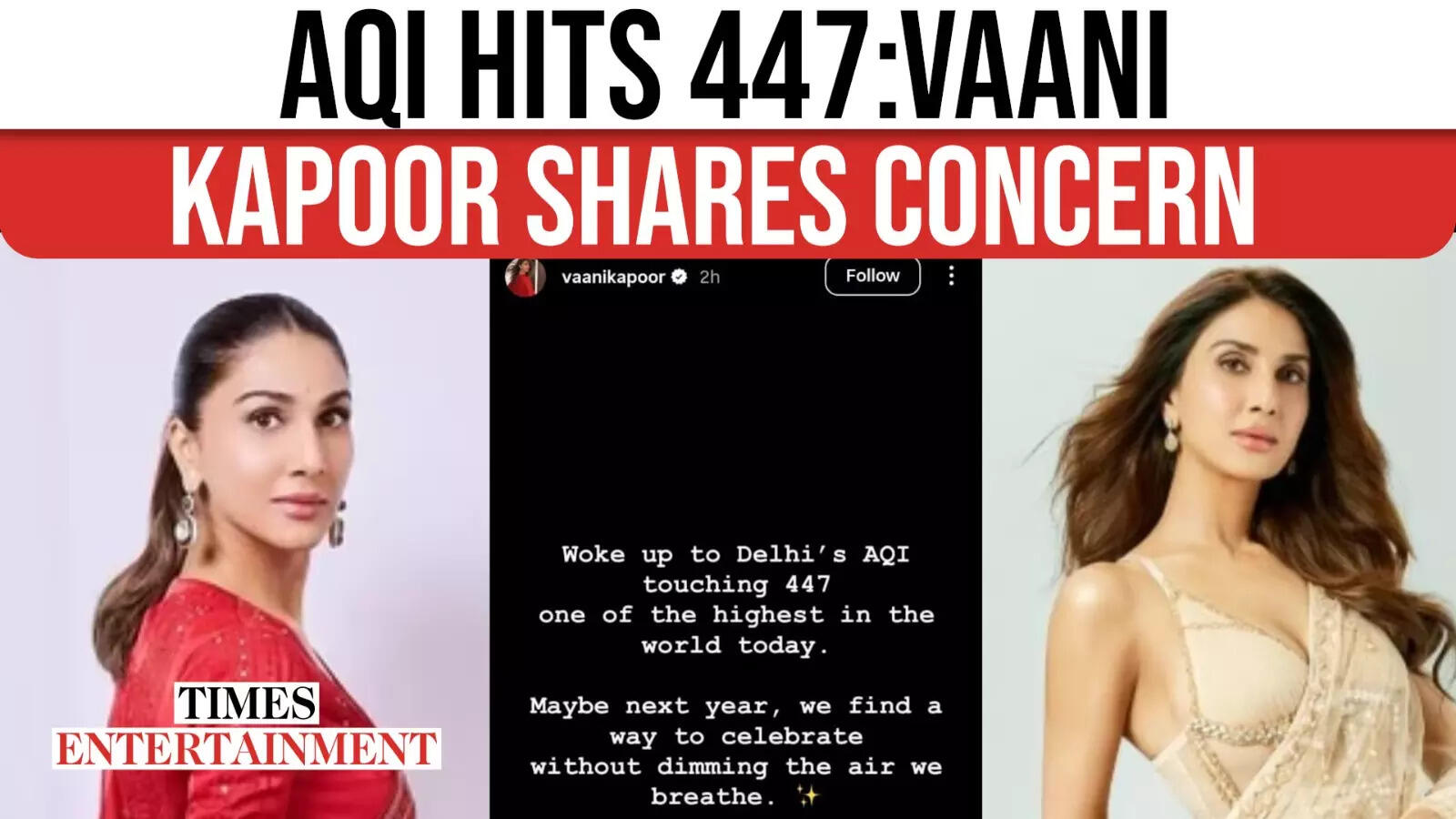Top Stories
Vaani Kapoor Sparks Debate on Air Pollution Awareness in Delhi

Vaani Kapoor, a prominent figure in the Indian film industry, stirred controversy during the recent Diwali celebrations by discussing the deteriorating air quality in Delhi. In an Instagram story, she expressed her concerns about the severe pollution levels in the city, which often escalate during the festival season due to increased firecracker usage. While many applauded her for raising awareness, others criticized her for only addressing the issue during Hindu festivals.
The backlash stemmed from a perception that Bollywood celebrities often engage in environmental discussions selectively, primarily during significant cultural events. Critics on social media questioned why such issues do not receive consistent attention outside of these occasions. This discourse has broadened into a larger examination of environmental activism and the responsibilities of public figures in addressing climate-related issues year-round.
Social Media Responses Highlight Divide
The online debate has drawn varied reactions. Supporters of Kapoor highlighted the importance of discussing air quality, especially during a time when pollution levels in Delhi can reach alarming heights. According to the Central Pollution Control Board, air quality in Delhi can often fall into the “severe” category around Diwali, with particulate matter levels surging far beyond safe limits.
Conversely, detractors emphasized that Kapoor’s comments appeared opportunistic, suggesting that her activism lacked depth and continuity. One user remarked, “It would be great to see celebrities like Vaani Kapoor advocate for cleaner air consistently, not just during Diwali.” This sentiment reflects a growing expectation among the public for celebrities to engage with pressing issues outside of festive contexts.
Environmental Impact and Public Awareness
The conversation surrounding Kapoor’s comments has highlighted the urgent need for continuous awareness regarding air pollution, especially in urban areas like Delhi. The season of Diwali often sees a spike in air pollution due to the extensive use of fireworks, contributing to a significant health hazard for residents. According to a report by the World Health Organization, air pollution is responsible for millions of premature deaths globally each year, with India being one of the countries most affected.
In response to the ongoing pollution crisis, various organizations and activists have called for a more sustained effort in tackling air quality issues. Initiatives aimed at promoting eco-friendly celebrations during festivals are gaining traction, encouraging communities to seek alternatives to traditional firecrackers.
As the discussion evolves, it remains clear that the intersection of celebrity influence and environmental advocacy presents a complex challenge. Moving forward, the hope is for a more consistent and meaningful engagement with environmental issues by public figures throughout the year, not just during festive occasions. The dialogue ignited by Vaani Kapoor serves as a reminder of the responsibility that comes with visibility and influence in addressing critical global challenges.
-

 World3 months ago
World3 months agoSBI Announces QIP Floor Price at ₹811.05 Per Share
-

 Lifestyle3 months ago
Lifestyle3 months agoCept Unveils ₹3.1 Crore Urban Mobility Plan for Sustainable Growth
-

 Science3 months ago
Science3 months agoNew Blood Group Discovered in South Indian Woman at Rotary Centre
-

 Sports3 months ago
Sports3 months agoBroad Advocates for Bowling Change Ahead of Final Test Against India
-

 World3 months ago
World3 months agoTorrential Rains Cause Flash Flooding in New York and New Jersey
-

 Top Stories3 months ago
Top Stories3 months agoKonkani Cultural Organisation to Host Pearl Jubilee in Abu Dhabi
-

 Science3 months ago
Science3 months agoNothing Headphone 1 Review: A Bold Contender in Audio Design
-

 Top Stories3 months ago
Top Stories3 months agoAir India Crash Investigation Highlights Boeing Fuel Switch Concerns
-

 Sports3 months ago
Sports3 months agoCristian Totti Retires at 19: Pressure of Fame Takes Toll
-

 Business3 months ago
Business3 months agoIndian Stock Market Rebounds: Sensex and Nifty Rise After Four-Day Decline
-

 Politics3 months ago
Politics3 months agoAbandoned Doberman Finds New Home After Journey to Prague
-

 Top Stories3 months ago
Top Stories3 months agoPatna Bank Manager Abhishek Varun Found Dead in Well









